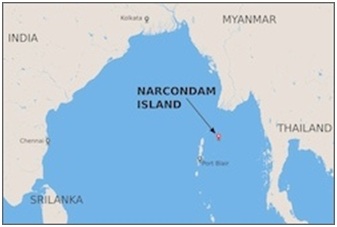A new shrew species discovered in Andamans’ Narcondam Island
Scientists from the Zoological Survey of India (ZSI) have discovered a new species of insectivorous mammal from Narcondam Island of the Andaman and Nicobar group of islands.
Context
Scientists from the Zoological Survey of India (ZSI) have discovered a new species of insectivorous mammal from Narcondam Island of the Andaman and Nicobar group of islands.
About the new species
- Nomenclature: The species Crocidura narcondamicais a new addition to the list of mammals which are found in the country.
- The new white-toothed shrew species is named after the Narcondam Island.
- India: Narcondam Shrew Crocidura norcondamica
- These are small and mouse-like mammals that live in sub-leaf stratum in the forests.
- Insects are the primary diet of these animals.
- The new species is medium size (head and body lengths) and has different external morphology with darker grey dense fur with a thick, darker tail compared to other species of the genus.
- Craniodental characters (such as braincase) of the species was rounded and elevated with weak lambdoidal ridges.
- This discovery is based on both osteological and DNA molecular studies of the specimen.
- Numbers: With this discovery the number of mammals found in the country have increased from 429 to 430.
- This is the first discovery of a shrew from this volcanic island (Narcondam Island) and it increases the number of White-toothed shrew (genus Crocidura) species in India from 11to 12.
- The discovery of a new insectivorous mammal comes after 43 years.
- Prior to this, scientists from the ZSI had discovered Crocidura jenkinsi on the South Andaman Island in 1978.
Narcondam Island
|


